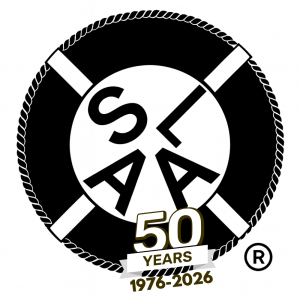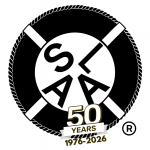The Question:
1) Should the FWS copyright be attached to draft literature before it is conference approved? I work for a corporation that publishes newspapers. Some columnists write exclusively for the newspaper and sign a contract that they will not publish their articles elsewhere without the permission of the corporation. (my question to the Board was my attempt at this even though I didn’t sign an agreement.) I believe the copyright belongs to the individual until it is Conference approved – that’s why I assumed that if my writing didn’t get approved (I’ve been in this process with the CLC for 5 years) that I would be allowed to take my writing elsewhere (two other individuals did this in the CLC)
2) Intergroup approval vs. Conference approval.
My idea is to take the Step Questions Workbook (my writing only Steps 5-12 and my charts- comparison attached-I would leave Steps 1-4 in the CLC archives where I found them) to Los Angeles Intergroup and see if I could get it LA Intergroup approved – (making it clear that it is not conference approved literature but LA Intergroup approved literature) to sell on our literature table (all proceeds would go to FWS). I would like to also send it to all SLAA Intergroups and see if they vote to approve and make changes -I could send each Intergroup a version with their changes and then maybe some day down the line we could try to get it conference approved. As it stands now, it has caused conflict and confusion at 2 ABMs with a group conscience vote and it failing.
The CSTCC recognizes that this Question would be best answered by a qualified copyright attorney working with FWS staff and/or the BOT, and in keeping with Tradition 8. However, we feel that the Traditions and Concepts can provide some general guidance to finding a spiritual solution to this Question. In keeping with that idea, we are providing the following Responses.
Response #1:
2.) I thought we were consistent in requiring the entire Fellowship Conference to approve any literature. On the other hand, her sending it to different IGs to review and discuss might be a good way to facilitate its finishing. It would be good to have an approved SLAA 12- Step Workbook.
Response #2:
Question 1:
Perhaps our process should be refined. A copyright © notice really needs to be included in any writing done for the Fellowship. The default should be © FWS. However, if an individual requests that the piece indicate that they personally control the copyright, I dont see why we shouldn’t grant it to them at the beginning of the process. The writer would need to be aware of probable lack of anonymity. Two issues: 1) if the piece is accepted by the ABM, but then the author wants some payment or the author pulls the piece for another reason, we’ve wasted a lot of time. Keeping the copyright with FWS means it is publishable or not based on FWS decision, not external factors. However, 2) if FWS decides not to publish the piece, the piece could be lost in the FWS system and never get published. The author would need to go through the difficulty of regaining the copyright. It seems right and fairly easy to codify that any literature not accepted for publication by FWS would have its copyright reverted to the author.
However, much of the writing for FWS is not done by a single author. It is often a group effort with no clear copyright owner other than FWS. The effort to sort out such issues would be in my opinion burdensome for our Fellowship.
Question 2:
Groups, including Intergroups, are autonomous. If an Intergroup, or a group, wants to publish something they are certainly free to do so. The only limitation would that the published piece not indicate any official association with, or endorsement by, FWS.
These two questions are practical questions addressing the behavior and operation of our service organization. The questions have answers in the Traditions and the Concepts. We do not govern. Our individual behavior must be guided by the Steps with the foundation of love and tolerance. Our group behavior is also guided by the Traditions and Concepts. Use of a professional advisor, a copyright expert in this case, is highly recommended in situations such as this involving legal issues.
Response #3:
It seems like questions 1 and 2 are somewhat intertwined. I think these questions should go to a copyright law specialist (which I am not). From my lay perspective, the copyright issues seem complicated (but there might be law and precedent on these issues). If I were a copyright lawyer, I would want to know (1) whether such a workbook is copyrightable at all, (2) whether each contributing author gets their own individual rights for their individual sections, (3) whether the contributing authors waived their rights by writing and contributing their services charitably to the Program, etc. I would also want to know how the concept of “fair use” might apply.
I do believe there is a concept that the author of a written work obtains a copyright automatically even without applying to the Copyright Office. I think a Copyright Office registration is just evidence of a valid copyright. As far as the Traditions are concerned, I have the following thoughts. It’s possible that Tradition 1 would suggest that S.L.A.A. unity should be a consideration. Also Tradition 4 might have some impact perhaps suggesting that in this matter each group should not be autonomous because the matter may affect S.L.A.A. as a whole.
Response #4:
I do have the same question regarding the copyright for literature submitted to the Conference. I am not clear on why submitting this work to the Conference immediately authorizes the Conference/FWS as the copyright holder. I would think the ownership of the material remains with its writer until the approval process has been confirmed; if that is not the case, I’m not clear on why that is. Perhaps a special worker (i.e. a copyright lawyer) is needed to navigate this issue?
Once that conflict of ownership is solved, it seems the writer can take their work wherever they want, including to a local intergroup. However I’m not sure if an Intergroup should provide and publish their own SLAA literature and call it “SLAA literature” if it has not been Conference approved. It would then simply be outside literature that is being approved by a particular intergroup to sell to the members based on its popularity, and not based on whether the fellowship as a whole approves it and recognizes it as representative of us all. I think that particular individual can and should publish their work as an individual, but to call it the SLAA Step Workbook requires commitment from the entire fellowship, and not just an individual intergroup. Taking such actions (in my opinion) fragments the unity of the Fellowship as a whole, but again this is just an opinion and every group has the right to make mistakes. It is my opinion that SLAA literature should all go through the Conference approval channel, because this protects the clarity and unity of our message and keeps all groups (even in their autonomy) aligned and united with our singleness of purpose.
I would support any and all measures to get drafts of this current piece of literature out to all Intergroups for support and constructive edits, so this material can be ultimately approved at the conference level. It appears to be an important piece of literature that deserves more respect, time, attention, and energy, and as a writer, I would not be swayed by the challenges that have come up the past few years regarding getting this approved. Sometimes things that are worthwhile take more time and perseverance than is comfortable, but if the ultimate goal is to provide a Step Workbook that is lasting and provides profound recovery for generations to come, it may take some time before all the kinks are worked out to the point it is ready to be distributed as official SLAA literature, and I believe that should be the ultimate goal of the project.
Response #5:
This question is outside the purview of the Steps, Traditions and Concepts. It doesn’t seem appropriate for the CSTCC to comment on this.
Response #6:
In response to question 1, I think this will be something for the Board of Trustees to look into further. The BOT could use two pieces of SLAA literature to help guide their decision. They are the "Is It Really Necessary?" pamphlet, and the “S.L.A.A. Copyright and Logos Update”. Both address issues with draft literature and copyrights. There is nothing in the Traditions that directly addresses this issue, but there is some general guidance found in the 12 Concepts. This is an issue whose outcome would affect the policy of the FWS and could affect the finances as well (through literature sales). Concept 8 indicates that the trustees are the administrators of both policy and finance. Concept 11 indicates that the trustees need the best possible consultants, and in this case a qualified copyright attorney may need to be consulted.
Concepts 9 and 6 both indicate that the trustees are the primarily leaders responsible for world service affairs. This appears to be a world service issue, so it seems like the BOT would best provide the answer.
In response to Question 2, the approach outlined seems to be a workaround to the actual Conference approval process. Obtaining a local Intergroup approval instead of Conference approval would appear to be setting up a alternate approval method. In Concept 2, individual Groups and Intergroup’s delegate responsibility to the Conference by sending a representative to the ABM. Tradition 2 indicates that our representatives are but trusted servants, and Concept 3 gives them the “Right of Decision” to vote as they feel appropriate. Concept 4 provides that each representative has the “Right of Participation”, which allows them to cast one vote up to the level at which they are trusted servants.
Concepts 2, 3, and 4, along with Tradition 2 are the foundation of our Conference approval process. Working within the structure of the Traditions and Concepts will ultimately help to produce harmony. While some conflict and confusion may have occurred at the ABMs, that is a natural part of the democratic process. But, attempting to circumvent the process could result in much more significant conflict and confusion within the fellowship as a whole. This seems to go against the intent of Tradition 4.
My suggestion is to send out the Steps Workbook to the Intergroups, but not for approval.
Instead, send it out for review and feedback, then incorporate that feedback into the revision
process.
My hope is that the revised version will be taken back to the ABM for approval. This Steps
Workbook is very important, and it would be of great benefit to the whole fellowship if it were
a Conference approved piece of literature.


